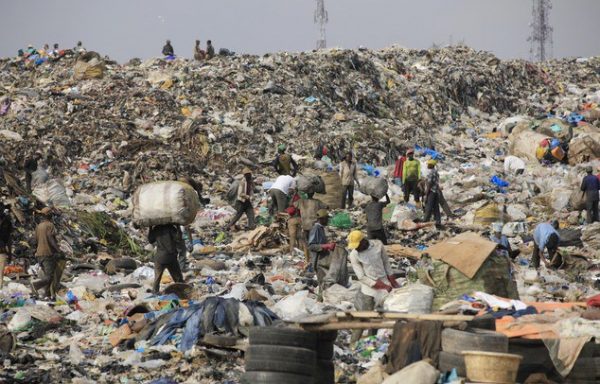The Nigerian Bottling Company has restated its commitment to environmental sustainability through various initiatives to stop waste pollution in the country.
Sade Morgan, Legal, Public Affairs and Communications Director, NBC, made the pledge at a media parley on Saturday in Lagos.
According to her, NBC is developing new initiatives to drive sustainability in its operations to reduce its environmental impact to advance sustainable development.
She noted that the world was confronted with packaging challenge and NBC had a responsibility help to proffer solutions to the problem.
She said: “As a responsible corporate organisation, we are aware of the dangers plastic pose to our environment, so we have put in place measures to ensure we protect the environment from pollution.”
According to her, NBC with its partner, Coca Cola Nigeria Limited, will collaborate with other social enterprises, for collection and recovery of post-consumer packaging materials (PET bottles), as part of its extended producer responsibility initiative.
Ifeoma Okoye, Public Affairs Manager (Lagos & West), NBC, said the company entered into partnership with Wecyclers; a company that promotes environmental sustainability and community health through convenient recycling services.
Okoye said: “The company will not only collect and recycle our used PET bottles but also other ones to ensure that they do not clog our drainage and environment.”
Okoye said Coca-Cola in 2005 established a recovery and buyback scheme for PET bottles with a private investor, Alkem Nigeria Limited, and the bottles were recycled into synthetic fibre.
She also said the company in 2012, reached out to other leading beverage companies to form a voluntary group comprising Coca-Cola, NBC, Nestle, Nigerian Breweries and Seven-Up Bottling Company.
According to her, the group became the nucleus of the Food & Beverage Recycling Alliance that served as the Producer Responsibility Organisation for the food and beverage sector.
Okoye said through FBRA’s mission, the industry has been able to recover and recycle food and beverage packaging waste, created a sustainable recycling economy, employment, innovation and wealth creation.
She said NBC would continue to partner with various state governments to evolve programmes and actions that would assist to reduce plastic pollution in the country.

In this photo taken Friday, Jan, 24. 2014, scavengers in Lagos, Nigeria sort out iron and plastic to sell at the Olusosun dump site the city's largest dump. With a population of more than 20 million, garbage piles up on streets, outside homes and along the waterways and lagoons, creating eyesores and putrid smells. The booming city also has major electricity shortages and many residents rely on diesel generators that cloud the air with black exhaust. Nigeria's most populous city is turning these problems into an advantage by starting a program to convert waste into methane gas to generate electricity. A pilot program at a local market has already shown success on a smaller scale. Lagos waste management program is also organizing recycling to clean up the country's biggest city. (AP Photo/ Sunday Alamba)

